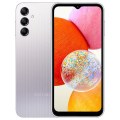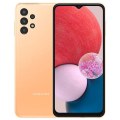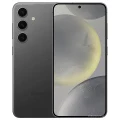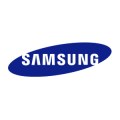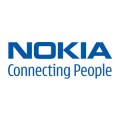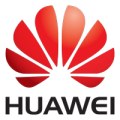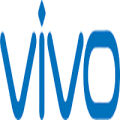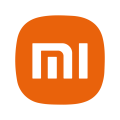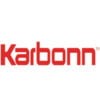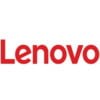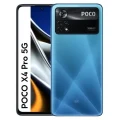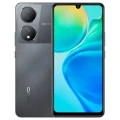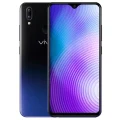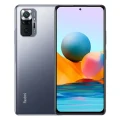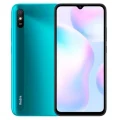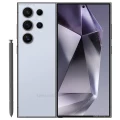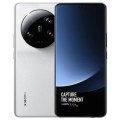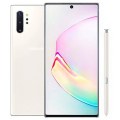- Awesome page
- Latest Mobile
- Smartphones
- Samsung Galaxy A71
Samsung Galaxy A71
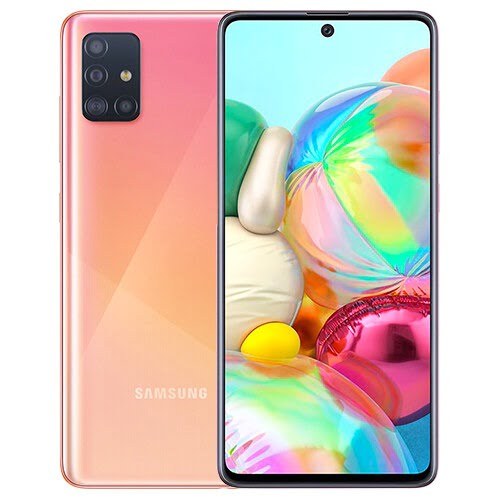

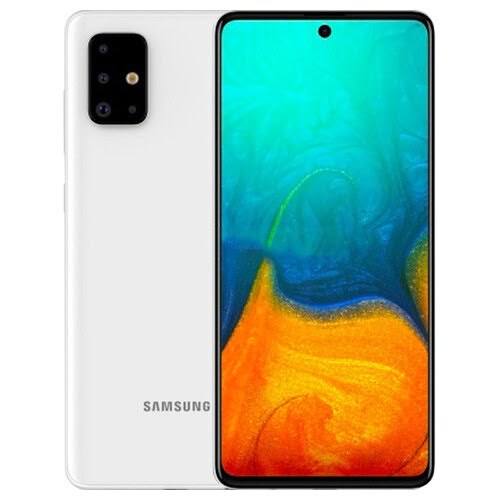

Samsung Galaxy A71 Price in Bangladesh
The Samsung Galaxy A71 is priced in Bangladesh at BDT 34,999 for the 8GB/128GB model. This smartphone has a 6.7-inch Super AMOLED display, a Snapdragon 730 chipset, and a 64MP quad-camera configuration, providing exceptional performance and value for the price.
Specifications
General
| Model | Samsung Galaxy A71 |
| Announced | 20-12-2019 |
| Released | 20-01-2020 |
| Status | Available |
| Official price | Official (8GB+128GB) 34,999 |
| Unofficial price | Unofficial (6GB+128GB) 33,500 / (8GB+128GB) 30,000 |
Design
| Dimensions | 163.6 x 76 x 7.7 mm (6.44 x 2.99 x 0.30 in) |
| Weight | 179 g (6.31 oz) |
| Colors |
Prism, Crush Black, Silver, Blue, Pink |
Network
| Technology | GSM / HSPA / LTE |
| 2G Network |
GSM 850 / 900 / 1800 / 1900 - SIM 1 & SIM 2 |
| 3G Network |
HSDPA 850 / 900 / 1900 / 2100 |
| 4G Network |
LTE band 1(2100), 3(1800), 5(850), 7(2600), 8(900), 34(2000), 38(2600), 39(1900), 40(2300), 41(2500) |
| GPRS <strong>GPRS</strong> (General Packet Radio Service) is a packet oriented mobile data service on the 2G and 3G cellular communication system's global system for mobile communications (GSM), Generally, GPRS is used for the purpose of wireless data transfer, such as sharing pictures and videos or browsing the Internet via a mobile phone connection. | |
| EDGE <strong>EDGE</strong> (Enhanced Data GSM Environment) is a wireless network technology generally considered the next step in the 2G network offers data transfer rates up to four times faster than ordinary GSM networks, Generally, EDGE is used for the purpose of wireless data transfer, such as sharing pictures and videos or browsing the Internet via a mobile phone connection. | |
| Speed | HSPA 42.2/5.76 Mbps, LTE-A (2CA) Cat6 400/50 Mbps |
Display
| Display Type <strong>Display Technology => </strong> A number of display technologies and types used in mobile phones => TFT (Thin Film Transistor), IPS (In-Place Switching), OLED (Organic Light Emitting Diode), AMOLED (Active-Matrix Organic Light-Emitting Diode), Super AMOLED (an even advanced version of AMOLED), Resistive Touchscreen (Resistive touchscreens contain two layer of conductive material with a very small gap between them which acts as a resistance), Capacitive Touchsceen (Capacitive touchscreen technology consists of a layer of glass coated with a transparent conductor) | Super AMOLED capacitive touchscreen, 16M colors |
| Size | 6.7 inches, 108.4 cm2 (~87.2% screen-to-body ratio) |
| Resolution | 1080 x 2400 pixels, 20:9 ratio (~393 ppi density) |
| Features |
Corning Gorilla Glass 3 |
Camera
Main camera
| Camera Setup | Quad |
| Primary <strong>Camera</strong> is able to capture photographs and usually videos, The most important characteristics of a camera are the resolution (measured in megapixels), lens focus type (fixed or automatic), higher megapixel cameras are known to capture higher quality photos, but not always a good measurement of the photos quality. |
64 MP, f/1.8, 26mm (wide), 1/1.7&amp;amp;amp;amp;quot;, 0.8µm, PDAF 12 MP, f/2.2, 13mm (ultrawide) 5 MP, f/2.4, 25mm (wide), dedicated macro camera 5 MP, f/2.2, 1/5.0&amp;amp;amp;amp;quot;, 1.12µm, depth sensor |
| Features |
LED flash, panorama, HDR HDR |
| Video | 2160p@30fps, 1080p@30/240fps 1080p@30fps |
Selfie camera
| Camera Setup | Single |
| Primary <strong>Camera</strong> is able to capture photographs and usually videos, The most important characteristics of a camera are the resolution (measured in megapixels), lens focus type (fixed or automatic), higher megapixel cameras are known to capture higher quality photos, but not always a good measurement of the photos quality. |
32 MP, f/2.0, 26mm (wide), 1/2.8", 0.8µm |
| Features | HDR |
| Video | 1080p@30fps |
Hardware
| Chipset <strong>Chipset</strong> is a group of integrated circuits designed to perform one or a more dedicated functions, often with real time computing constraints, Popular smartphones are equipped with more advanced embedded chipsets that can do many different tasks depending on their programming. | Qualcomm SDM730 Snapdragon 730 (8 nm) |
| CPU <strong>CPU</strong> (Central Processing Unit) mostly known as processors, CPU processes instructions in order to carry out certain functions that make your device operate properly. Processors are often described as the brain of computers, smartphones and tablets, Smartphones and tablets rely on processors to carry out their every task, Processors are an incredibly important factor in selecting any type of computing device, including your smartphone. | Octa-core (2x2.2 GHz Kryo 470 Gold & 6x1.8 GHz Kryo 470 Silver) |
| GPU <strong>GPU</strong> (Graphics Processing Unit) is a single-chip processor designed to rapidly manipulate and alter memory to accelerate the creation of images in a frame buffer intended for output to a display, This includes things such as lighting effects, object transformations, and 3D motion. | Adreno 618 |
| RAM (Memory) <strong>RAM</strong> (Random Access Memory) is a type of computer memory that can be accessed randomly, any byte of memory can be accessed without touching the preceding bytes that allows information to be stored and accessed quickly from random locations. RAM is the most common type of memory found in computer systems, smartphones, tablets and other electronic devices. | 8/6 GB |
| Internal Storage <strong>Internal Storage</strong> is a data storage space (flash memory) mostly used in smartphones, tablets and other electronic devices where operating system, apps, music, photos, videos, files and other user data Is stored. | 128 GB |
| Sensors <strong>Sensors</strong> are electronic components that detects and responds to some type of input from the physical environment. The specific input could be light, heat, motion, moisture, pressure and location, The output is generally a signal that is converted to use in computing systems, a location sensor, such as a GPS receiver is able to detect current location of your electronic device. |
Fingerprint (under display, optical), accelerometer, gyro, proximity, compass ANT+ |
Connectivity
| Bluetooth <strong>Bluetooth</strong> is a wireless communications technology for exchanging data between mobile phones, headsets, computers and other network devices over short distances without wires, Bluetooth technology was primarily designed to support simple wireless networking of personal consumer devices. | 5.0, A2DP, LE |
| Infrared <strong>Infrared</strong> connectivity is an old wireless technology used to connect two electronic devices. It uses a beam of infrared light to transmit information and so requires direct line of sight and operates only at close range. | |
| USB | 2.0, Type-C 1.0 reversible connector, USB On-The-Go |
| GPS <strong>GPS</strong> The Global Positioning System is a satellite-based radio navigation system, GPS permits users to determine their position, velocity and the time 24 hours a day, in all weather, anywhere in the world, In order to locate your position, your device or GPS receiver must have a clear view of the sky. | Yes, with A-GPS, GLONASS, GALILEO, BDS |
| NFC <strong>NFC</strong> (Near field communication) is a set of standards for smartphones and similar devices to establish peer-to-peer radio communications with each other by touching them together or bringing them into proximity, usually no more than a few inches. |
Battery
| Battery Type <strong>Battery Type => </strong> Cell phones run on various kinds of batteries depending on the manufacturer, phone size or shape and features. There are basically four types of cell phone batteries => Lithium Polymer, Lithium Ion, Nickel Metal Hydride and Nickel Cadmium. | Non-Removable Li-Po |
| Capacity <strong>Battery Capacity</strong> is a measure (typically in Amp-hr) of the charge stored by the battery, and is determined by the mass of active material contained in the battery. The battery capacity represents the maximum amount of energy that can be extracted from the battery under certain conditions. | 4500 mAh |
| Charging Charging | Fast battery charging 25W |
Samsung Galaxy A71 Review A Star in the Mid-Range Galaxy
Exploring the Galaxy A71
In the vast cosmos of smartphones, the Samsung Galaxy A71 shines brightly as a top contender in the mid-range category. For tech enthusiasts and Samsung fans alike, this device promises to deliver a stellar experience without burning a hole in your pocket. Whether you’re a devoted techie or someone just seeking a reliable smartphone, this review will guide you through the features that make the Galaxy A71 a standout choice. From its eye-catching design to its robust performance metrics, we’ll explore what sets this smartphone apart and help you decide if it’s worth that coveted spot in your pocket.
Design and Display Brilliance
Aesthetically pleasing with a touch of sophistication, the Samsung Galaxy A71 exudes elegance. Crafted with high-quality materials, its sleek design fits comfortably in the hand. The phone’s front is dominated by a stunning 6.7-inch Super AMOLED Plus display. This screen is not only large but also vivid, making it perfect for browsing, gaming, or watching videos on the go. Colors pop with incredible vibrancy, providing an immersive viewing experience that tech enthusiasts will appreciate. The edge-to-edge display ensures that every inch of the screen is utilized, enhancing both functionality and aesthetic appeal.
Another notable feature is the thin bezels that create a clean, modern look, enhancing the phone’s overall visual appeal. The back of the phone boasts a glossy finish, adding a touch of luxury. Yet, it remains practical with a slim profile that slides easily into pockets. Available in various color options, users can choose a style that reflects their personality, whether it’s classic black or a more vibrant hue. Overall, the design and display cater to users who value both form and function in their devices.
Performance Powerhouse
Under the hood, the Samsung Galaxy A71 is powered by the Snapdragon 730 processor, a reliable choice for mid-range phones. This chipset ensures smooth performance across a variety of tasks, from everyday browsing to multitasking and more intensive applications. Coupled with generous RAM, the A71 manages applications efficiently, allowing users to switch between apps seamlessly without any slowdown. This makes it an excellent choice for users who demand fluidity in their smartphone experience.
For the gaming enthusiasts out there, the A71 does not disappoint. The device handles popular games with ease, offering a lag-free experience that enhances gameplay. Graphics are rendered beautifully on the AMOLED display, bringing games to life with sharp detail and vibrant colors. Additionally, the phone stays cool even during extended gaming sessions, thanks to its efficient thermal management. Overall, the A71’s performance capabilities ensure it meets the needs of both casual users and demanding tech enthusiasts alike.
Capturing with Clarity
Samsung’s Galaxy A71 boasts a quad-camera setup that is versatile and capable. This setup includes a 64MP main sensor, a 12MP ultra-wide lens, a 5MP macro lens, and a 5MP depth sensor, catering to photography enthusiasts who love experimenting with different styles. The main sensor captures images with impressive detail and clarity, even in challenging lighting conditions. Night mode further enhances low-light photography, ensuring that every shot is Instagram-worthy.
The ultra-wide lens offers a broader perspective, perfect for capturing landscapes or group shots without missing any details. Meanwhile, the macro lens allows for close-up photography, revealing textures and details that the naked eye might miss. Video recording capabilities are equally impressive, with options for 4K video capture that ensures your memories are recorded in the highest quality. Overall, the Galaxy A71’s camera setup provides a versatile toolkit for capturing life’s moments from every angle.
Battery Life and Charging Efficiency
Equipped with a 4500mAh battery, the Samsung Galaxy A71 delivers impressive endurance, making it ideal for users who are always on the go. In real-world usage, the device can easily last a full day with a mix of browsing, gaming, and media consumption. This longevity is especially appealing to users who rely on their smartphones throughout the day without access to frequent charging.
When it comes to recharging, the A71 supports 25W fast charging, a feature that significantly reduces downtime. In just a short charging session, users can replenish their battery, ensuring they’re always ready to tackle the next task. This efficiency makes it convenient for busy professionals and students alike, who need their devices to keep up with their dynamic lifestyles. The combination of robust battery life and fast charging reinforces the A71’s position as a reliable and user-friendly smartphone.
User Experience and Software
The Samsung Galaxy A71 runs on One UI, Samsung’s proprietary software layered over Android. This interface is intuitive and user-friendly, offering a seamless experience that caters to both seasoned tech users and novices. One UI prioritizes ease of use, with features like customizable home screens and quick-access panels that enhance usability. Regular updates ensure the device stays current with the latest features and security patches, providing peace of mind for users concerned about data security.
Unique features such as Edge Panels and Smart Popup View add to the device’s functionality, allowing for multitasking and quick access to frequently used apps. The software is designed to complement the hardware, ensuring users get the most out of their device. Whether you’re customizing your setup or using built-in productivity tools, the A71’s software experience is designed to enhance your daily interactions with technology.
Value for Money
In the competitive mid-range market, the Samsung Galaxy A71 offers significant value. Priced attractively, it competes with other smartphones in its category by offering a well-rounded package that balances performance, design, and functionality. When compared to other devices in the same price range, the A71 stands out for its superior display, versatile camera capabilities, and robust battery life.
For users seeking a device that doesn’t compromise on essential features, the A71 provides a compelling proposition. It caters to a wide range of needs, from casual browsing to more demanding tasks, making it suitable for various user profiles. The added value of Samsung’s brand reputation and customer support further enhances its appeal, solidifying its position as a smart investment for those entering the mid-range smartphone market.
Final Thoughts on the Galaxy A71
In conclusion, the Samsung Galaxy A71 is a formidable contender in the mid-range smartphone arena. With its striking design, powerful performance, and comprehensive feature set, it addresses the needs of tech enthusiasts, smartphone users, and loyal Samsung fans alike. The device excels in critical areas such as display quality, camera versatility, and battery performance, making it a worthy choice for those seeking value without sacrificing quality.
Whether you’re upgrading your device or exploring new options, the Galaxy A71 is worth considering. It offers a blend of innovation and reliability that sets it apart in a crowded market. Share your thoughts and experiences with the A71 in the comments below, and join the conversation with fellow tech enthusiasts as we explore the evolving landscape of smartphones.
